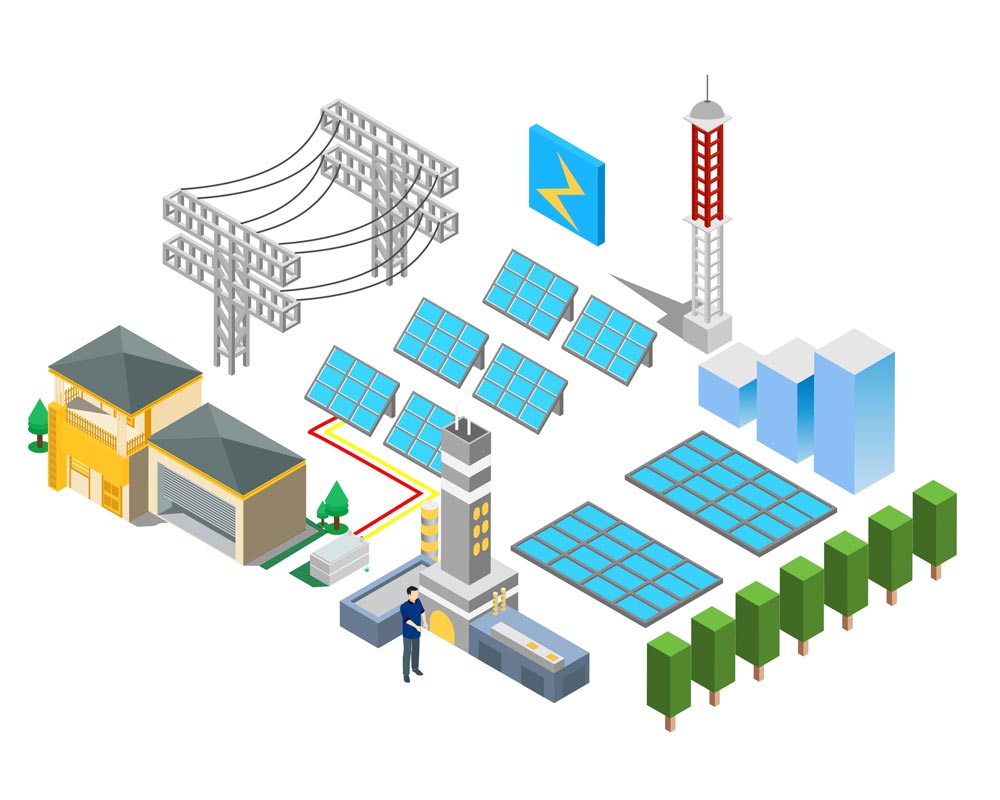Solutions
Utility Scale Solar
Utility-scale solar has been generating reliable, clean electricity with a stable fuel price for decades. Solar power plants can be developed in a way that balances environmental protection with our energy demands and climate goals. By enacting federal policies to accelerate growth of utility-scale solar, we can continue creating jobs nationwide and diversifying the country’s energy portfolio. Developing utility-scale solar power is one of the fastest ways to reduce carbon emissions and put Nigeria on a path to a clean energy future.

Solar Technologies
A utility-scale solar power plant can utilize several solar technologies – primary photovoltaics (PV) or concentrating solar power (CSP). What distinguishes utility-scale solar from distributed generation is both project size and the fact that the electricity is sold to wholesale utility buyers, not end-use consumers. Utility-scale solar plants provide the benefit of fixed-priced electricity during peak demand periods when electricity from fossil fuels is the most expensive.
Storage Capacities
Many utility-scale solar designs can also include energy storage capacity that provides power when the sun is not shining, and increases grid reliability and resiliency. Paired with energy storage, utility scale solar can be applied to manage evening energy ramps, provide backup power, and more. Grid scale battery storage is on the rise in the quest for these solutions. Known as ‘big battery’ technology, these address the intermittency challenge of renewables.
Creating Jobs
Utility-scale solar creates jobs across the supply chain, from R&D and engineering to manufacturing and project finance to development and construction.
